ROBERT COCHRANE – Interview
Robert was born June 6, 1970 and originally from Walnut Creek, CA. His education went from Ygnacio Valley High School in Concord, CA to studying Radio/TV Journalism at San Diego State University. From there Robert went to UCLA to study Screenwriting.
Robert earned his M.A. in Journalism & Media Studies at UNLV in 2012. He teaches film at The Art Institute since 2009. He had two features he wrote and played the lead role in produced in 1997 and 2000 in Los Angeles. They are “Emotionally Retarded and The Playaz Court, respectively.
The Playaz Court was released by Artisan Entertainment, had a lengthy run on Black Starz and still makes a turn on Netflix now and again. I had the privilege of seeing Robert’s award-winning short film, Gunslinger recently. It was part of a Simon & Schuster contest that called for filmmakers to do a scene from one of the Dark Tower books. I have to tell you from a “fanboy” prespective, I really enjoyed this film. Die-hard Dark Tower fans have been waiting for the day to see a full-length version of that epic journey on the big screen or even as a television series on cable, but until then, this short film was the next best thing and was well deserved. You can find it on Youtube.
During our interview, Robert shared this story about his dream to do more “Dollar Baby” films. ‘I mentioned wanting to follow in Darabont’s footsteps and doing so insomuch as making a Dollar Baby and getting King to watch it. I know King says he watches them all, but meeting him in person at Simon & Schuster was really unbelievable. You’re right about my being a fanboy. When King walked in the room there I was so nervous I pushed my back against the wall so hard as if to disappear into it. He shook everyone’s hand, including mine, and introduced himself as if we didn’t know who he was. Even the stoic security guard downstairs got excited when we showed our I.D. and told him what we were there to do that day.
After missing out on “The Long Walk”, which Frank still holds the rights to, by my understanding, I decided to pursue Darabont himself to see if he’d allow me to work on the project with him. I went to Bo Eason’s one man show in Hollywood called “Runt of the Litter” that I heard Frank was interested in developing. My wife and I watched the show, loved it, then spoke with Bo afterward. He said, “Did you meet Frank tonight?” I looked at him like he was crazy. As it turned out, Frank and his wife sat right next to us in this little Cracker Jack box theater and I didn’t recognize him. I contacted his production company, Darkwoods Productions. After following a similar tact I used with Marsha, writing weekly and signing as Andy Dufresne, a producer named Denise Huth got back to me. She was gracious and said Frank would look at my work, Luckey Quarter and Roland Meets Brown. I was thrilled. Unfortunately, I was also impatient. I can’t point to the exact moment, but somewhere in the months and perhaps years it took to get a solid reply from Denise about Frank looking at my work, and adding in my assisting two parents with failing health, I fired off a letter that was a bit strong. I don’t think I said anything terribly rude, but I do believe I was more forceful than I should have been. Denise stopped responding to my letters.
A few years later, I decided to adapt Survivor Type. It’s long been a haunting favorite and, at the time, no one had done anything with it – clearly that’s changed in the last few years. The adaptation I wrote, however, is a feature. After years of development and notes from many respected readers and Professors, I contacted Marsha to see if she’d read it. My hope was she’d see it and like it enough to pass it on to Steve. She agreed to read it. This was the fall of 2012. To date, she hasn’t read it and I don’t know why. I know I haven’t repeated the mistake I made with Denise Huth; I’ve been nothing but patient and polite with Marsha.
So here I wait, hoping that Marsha will take a look at my feature-length adaptation of Survivor Type. As I’m guessing you’ve read the short, you can understand the significant changes and development it would take to bring it to a feature. I’m of the opinion it’s the best thing I’ve written – but then I’m a writer and we seem to rarely understand our own work.’
Although little else is known about Robert’s background, I can tell you from doing our interview he has the ambition of a dedicted filmmaker and the heart of a die-hard Stephen King fan.
(Q.) Out of all the Stephen King short stories, what attracted you most to this one?
I love that it’s one of his quiet stories, the kind of story people who only know him viscerally wouldn’t believe he actually wrote. It’s a story of hope, fear, acceptance and redemption. It’s the same reason Rita Hayworth and Shawshank Redemption was one of my favorites even before it became one of my favorite movies. I used to enjoy asking people what they thought of Shawshank Redemption (almost all said they loved it) then reminding them it’s based very faithfully on a King novella. The look of shock and surprise was as good as any plot twist. These days most people seem to know, so a lot of other Constant Readers were probably out there getting the same thrill I was bring the masses up to speed.
(Q.) What changes did you make to make this your own as opposed to King’s original text?
I remained very faithful to the text as it was my intent to follow in Frank Darabont’s footsteps as he did with “The Woman in the Room”. There were small changes, like how the dream within a dream sequence played out in the casino and one omission, in particular, that bothered me a lot: not getting the scene at the bus stop where she decides to ride with the quarter instead of the bus. We were set to shoot it but just ran out of time.
(Q.) So many Stephen King fans want adaptations to be as close to the book as possible, how do you handle the pressure to keep the fans happy?
With all due respect to the other Constant Readers, being one myself, I wasn’t concerned about them in making this film. I wanted to find the greatest truths in the story and express them via the medium of film.
(Q.)What was your main goal you wanted to achieve about this film?
My main goal was to treat his work with respect and demonstrate my skill. It was a step forward in my Directing career because I hadn’t directed something with this much heat on it. King’s name will do that for you. This was also just before the flood gates seemed to open up for Dollar Babies. In 2003, making a Dollar Baby was not a well-known opportunity nor was the opportunity given out nearly as commonly as it is now. I wrote letters to Marsha DeFilippo for months, including silly personal trinkets like a picture of me performing as Caesar at Caesars Palace (my “regular” job at the time) or signing the letters “Andy Dufresne” in homage to Andy’s efforts to get the library in the prison. Interestingly, not long after wrapping “Luckey Quarter”, Simon and Schuster ran the American Gunslinger contest for King’s release of book number five in the Dark Tower series, “Wolves of the Calla”. The contest was to make a dramatic reading video of an excerpt from one of the first four books. I made a video from the first book called “Roland Meets Brown”. You can see it here. To my delight, I won the contest and got to meet King, in person, at the Simon and Schuster offices in Manhattan. Although the video is very poor quality, you can see a little bit about that meeting here.
(Q.) The slot machine in the hotels lobby, How did you operate that to show she wins?
We just pulled it until we got the winner we wanted. It was a prop, so the pulls were free, but you can’t move the drums without damaging the machine – something we obviously didn’t want to do. Once we had the winner we shot it, then reversed the film in post so it looks like they’re landing on the right reels. We also composited the shot in thirds in post so you’d see the drums that were still when we wanted them still and the ones moving we wanted moving at the right time.
(Q.) Where were the hotel and casino locations filmed and were there any difficulties filming on location?
We shot at a Super 8 motel in Boulder City, NV. It’s a nice little community about 20 minutes southeast of Las Vegas. It has a small town feel and they were very friendly about allowing us to shoot there. The casino was the Joker’s Wild, in Henderson, NV. Henderson and Las Vegas have grown into each other over the last 15 years, but Joker’s Wild is still on the outskirts. It was the first casino I dealt 21 at – a break-in house, as they call them (I had a short, but fast rise in the dealing biz). They were friendly, too, but the shoot had to be from 9p to 9a on a Sunday in order to take advantage of the times they were least busy. We shot there last, the third day of a three day shoot. The unfortunate part about that was how tired everyone was by about 5a. That was when we missed the bus stop and some other visually interesting shots we had slated.
(Q.) What is your greatest moment so far with the success of Luckey Quarter?
The greatest moment was either getting the email from Marsha that approved me for the Dollar Baby or having Steve hold the poster up at Simon and Schuster.
(Q.) What Stephen King story would you like to adapt on a large scale?
My first desire was to do “The Long Walk”. I spoke to Steve about that when we were at Simon and Schuster. He gave me about 10 minutes of face time where we talked all things baseball (we’re both junkies for the game) and other projects. I asked, very awkwardly, about the rights to “The Long Walk”. I think my exact quote was “What’s up with ‘The Long Walk’”? To which he replied, “What do you mean?” I asked what he wanted from it in terms of being made into a film. He said he wanted an independent to make it so it would be done right. I said, an independent like say, me? I told him how I’d like to adapt it and get his thoughts (again, like Darabont did with Shawshank). He said, I can’t promise you anything, but send me the script when it’s done. Four months later, I did just that. Marsha got right back to me with an apology saying Frank Darabont had recently optioned it. Son of an ironic bitch.
(Q.) Final question, What’s next for Robert Cochrane?
I’m in production with my latest documentary, “Boys of Summer – Second Base”. It’s a sequel to the original, which won several awards (you can see it here if you like : http://www.bosmovie.com). The original is the story of my dad, who has Parkinson’s Disease, and me road-tripping 20,000 miles in two months to see a game at each of the 30 Major League Baseball parks. We were supposed to meet Steve at the Red Sox game we went to and interview him. He was kind enough to give me his hotel and contact info, but he was out of town the day we were there (another near miss). Ten years later, we’re exploring Parkinson’s Disease differently. My dad is undergoing some interesting, somewhat controversial treatments this summer. We’re tying baseball in to all we do, but, like the original, baseball is a vehicle.


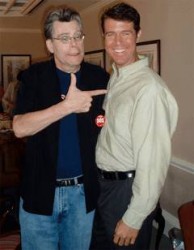
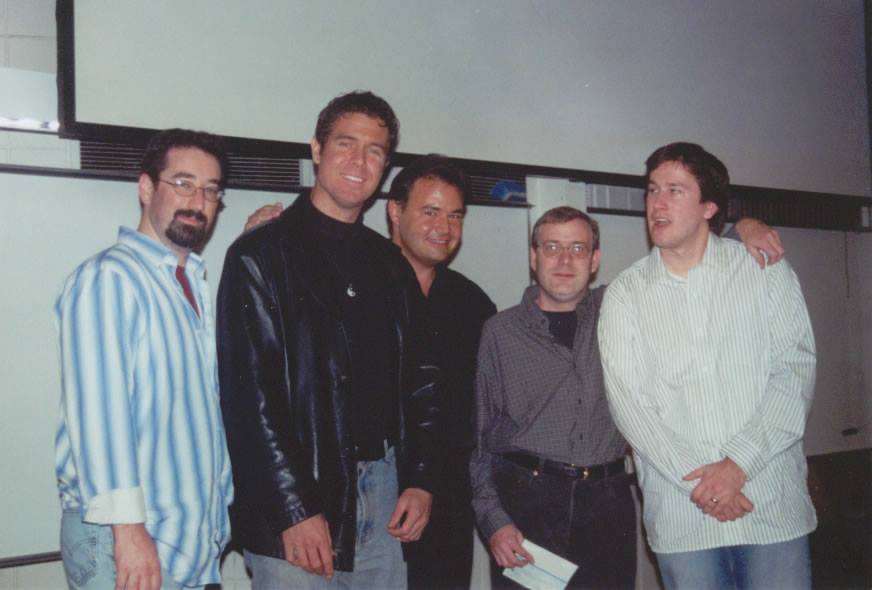
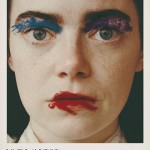
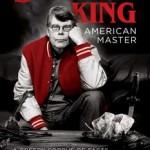

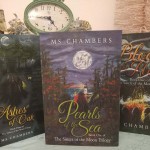 THE SISTERS OF THE MOON Trilogy – Samantha Chambers
THE SISTERS OF THE MOON Trilogy – Samantha Chambers (Italiano) UNA SPIEGAZIONE PER TUTTO – Gábor Reisz
(Italiano) UNA SPIEGAZIONE PER TUTTO – Gábor Reisz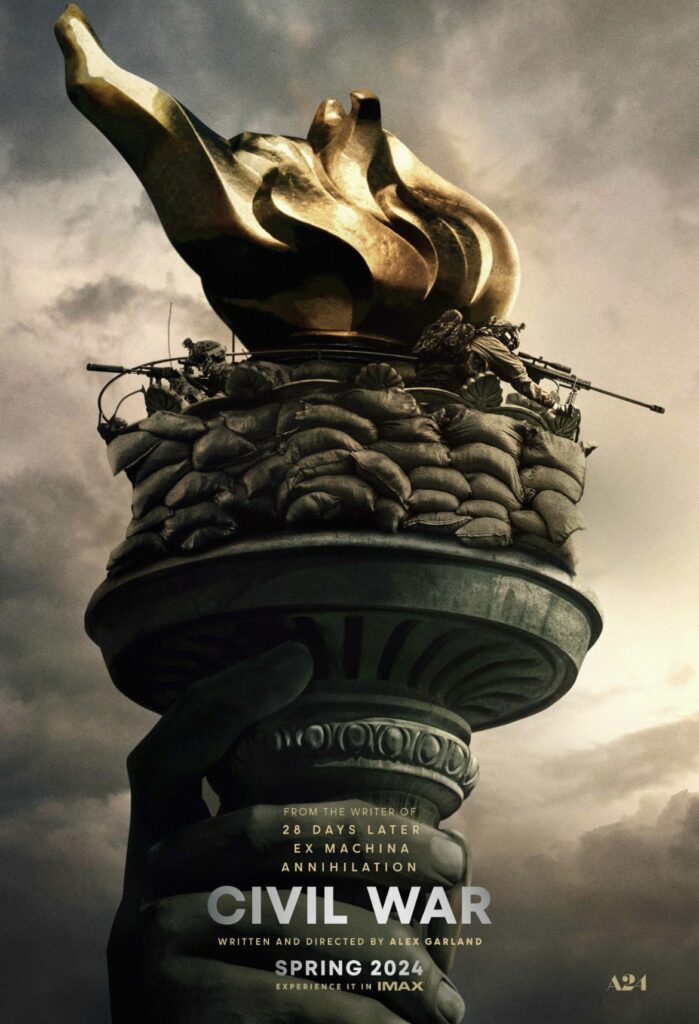 (Italiano) CIVIL WAR – Alex Garland
(Italiano) CIVIL WAR – Alex Garland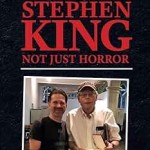 STEPHEN KING NOT JUST HORROR – Hans-Ake Lilja
STEPHEN KING NOT JUST HORROR – Hans-Ake Lilja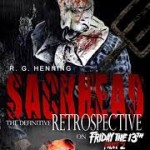 SACKHEAD:The Definitive Retrospective on FRIDAY THE 13th PART 2 – Ron Henning
SACKHEAD:The Definitive Retrospective on FRIDAY THE 13th PART 2 – Ron Henning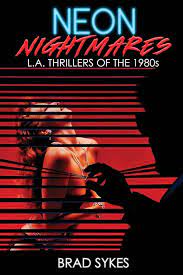 NEON NIGHTMARES: L.A. Thrillers Of The 1980′s – Brad Sykes
NEON NIGHTMARES: L.A. Thrillers Of The 1980′s – Brad Sykes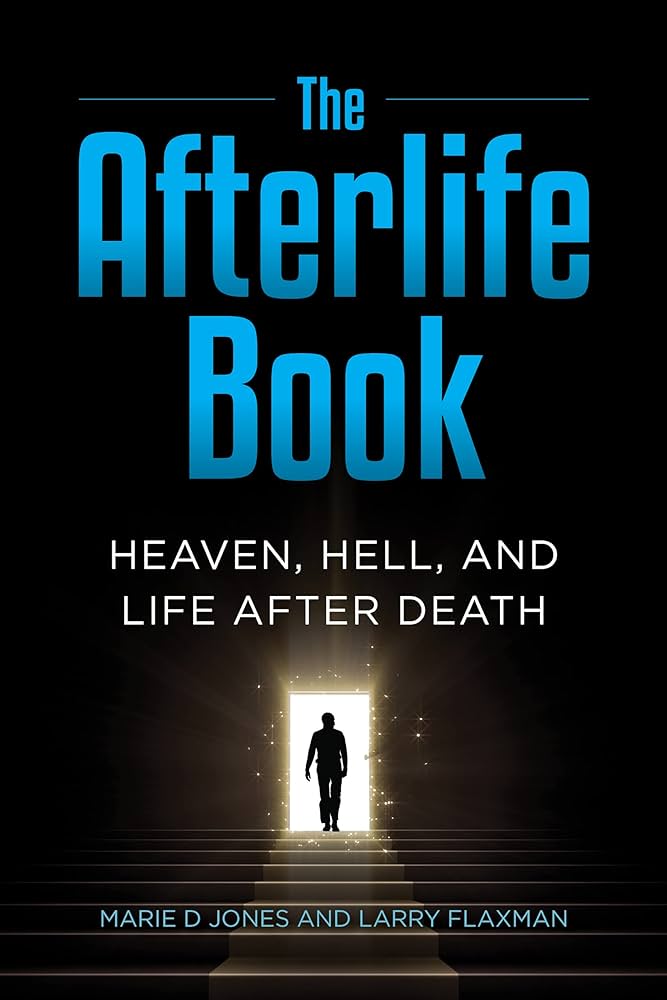 THE AFTERLIFE BOOK: Heaven, Hell, And Life After Death – Marie D. Jones & Larry Flaxman
THE AFTERLIFE BOOK: Heaven, Hell, And Life After Death – Marie D. Jones & Larry Flaxman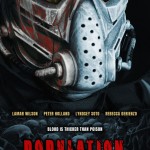 POPULATION PURGE – Brian Johnson
POPULATION PURGE – Brian Johnson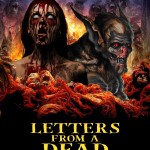 LETTERS FROM A DEAD WORLD – David Tocher (review & interview)
LETTERS FROM A DEAD WORLD – David Tocher (review & interview)